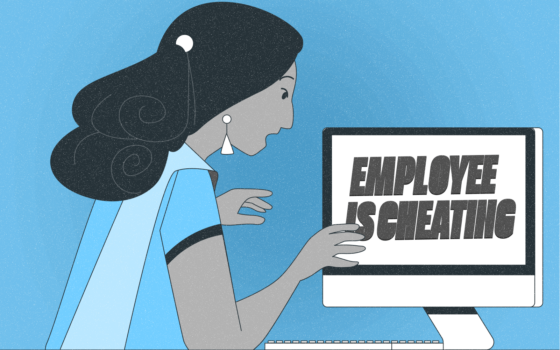Employee Birthdays
Employee Birthdays: A Comprehensive HR Glossary
In the realm of Human Resources (HR), employee birthdays hold a unique and significant place. Far from being mere calendar dates, these personal milestones serve as powerful tools for fostering a positive workplace culture, enhancing employee engagement, and strengthening team bonds. This comprehensive glossary delves into the multifaceted aspects of employee birthdays, exploring their impact on organizational dynamics, best practices for celebration, and the evolving trends in this often overlooked area of HR management.
The Significance of Employee Birthdays in the Workplace
Employee birthdays are more than just personal celebrations; they represent an opportunity for organizations to demonstrate care and appreciation for their workforce. Recognizing and celebrating these milestones can have a profound impact on employee morale, job satisfaction, and overall workplace atmosphere. By acknowledging birthdays, companies show that they value their employees as individuals, not just as cogs in the corporate machine.
Research has consistently shown that employees who feel valued and appreciated are more likely to be engaged, productive, and loyal to their organizations. A study by Globoforce found that 90% of employees who received birthday recognition felt a stronger sense of belonging to their company. This sense of belonging translates into tangible benefits for the organization, including reduced turnover rates, increased productivity, and improved teamwork.
The Psychology Behind Birthday Celebrations at Work
The psychological impact of birthday celebrations in the workplace is rooted in several fundamental human needs. Maslow's Hierarchy of Needs, a well-known theory in psychology, places belongingness and esteem needs as crucial components of human motivation. Workplace birthday celebrations directly address these needs by:
- Fostering a sense of belonging: When colleagues come together to celebrate an individual's birthday, it reinforces the idea that the employee is a valued member of the team.
- Boosting self-esteem: Being recognized on one's birthday can enhance an employee's sense of self-worth and importance within the organization.
- Creating positive associations: Celebrating birthdays at work can help employees associate their workplace with positive emotions, leading to increased job satisfaction.
- Strengthening social bonds: Birthday celebrations provide opportunities for team members to interact in a more relaxed, social setting, fostering stronger relationships.
Understanding these psychological underpinnings can help HR professionals and managers design more effective and meaningful birthday recognition programs.
Best Practices for Celebrating Employee Birthdays
While the concept of celebrating employee birthdays may seem straightforward, implementing an effective and inclusive program requires careful consideration. Here are some best practices for HR departments and managers to consider:
1. Respect Privacy and Personal Preferences
Not all employees may be comfortable with public celebrations or having their age disclosed. It's crucial to establish a system that allows employees to opt-in or opt-out of birthday recognitions. This can be done through a simple survey or during the onboarding process.
2. Consistency is Key
Ensure that birthday celebrations are consistent across all levels of the organization. This prevents perceptions of favoritism and ensures that every employee feels equally valued.
3. Personalization Matters
Generic celebrations can feel insincere. Encourage managers and team members to personalize birthday recognitions based on the individual's interests, preferences, or achievements.
4. Timing and Scheduling
Be mindful of workloads and deadlines when planning celebrations. A well-intentioned celebration can become a source of stress if it interferes with important work commitments.
5. Inclusivity in Celebrations
Consider cultural and religious differences when planning birthday celebrations. Some employees may have dietary restrictions or cultural practices that should be respected.
6. Balance Between Formal and Informal Recognition
While formal company-wide recognition has its place, encouraging informal team celebrations can create a more personal and meaningful experience.
7. Utilize Technology
Leverage HR software and communication tools to automate birthday reminders and facilitate company-wide recognition, especially in large or remote organizations.
The Evolution of Employee Birthday Celebrations
The way organizations approach employee birthdays has evolved significantly over the years, reflecting broader changes in workplace culture and employee expectations. Here's a look at how this practice has transformed:
Traditional Approaches
Historically, employee birthday celebrations were often limited to simple gestures like a card signed by colleagues or a brief mention in a team meeting. These approaches, while well-intentioned, were often seen as perfunctory and lacked personalization.
Modern Trends
Today's workplaces are increasingly recognizing the importance of meaningful birthday celebrations. Modern approaches often include:
- Experience-based celebrations: Instead of traditional cakes or gifts, some companies offer experiences like a day off, a team outing, or a voucher for a local attraction.
- Charitable contributions: Some organizations make donations to a charity of the employee's choice in lieu of a gift.
- Virtual celebrations: With the rise of remote work, virtual birthday parties have become more common, featuring online games, e-cards, and digital gift cards.
- Wellness-focused recognitions: Aligning with increased focus on employee well-being, some companies offer wellness-related birthday perks like spa treatments or fitness class passes.
- Personalized video messages: Collecting video messages from team members to create a personalized birthday compilation.
The Role of HR in Managing Employee Birthdays
Human Resources plays a crucial role in developing and implementing effective employee birthday programs. Here are key responsibilities and considerations for HR professionals:
1. Policy Development
HR should create clear policies regarding birthday celebrations, addressing issues such as budget allocation, privacy concerns, and celebration guidelines.
2. Data Management
Maintaining accurate and up-to-date employee birthday information is essential. HR must ensure that this data is collected, stored, and used in compliance with privacy regulations.
3. Cultural Sensitivity
In diverse workplaces, HR must consider cultural differences in birthday celebrations and ensure that practices are inclusive and respectful of all employees.
4. Budget Management
Allocating and managing the budget for birthday celebrations falls under HR's purview. This includes determining appropriate spending limits and ensuring equitable distribution of resources.
5. Training and Guidance
HR should provide guidance to managers and team leaders on how to effectively celebrate birthdays within their teams, ensuring consistency across the organization.
6. Measuring Impact
Implementing systems to measure the impact of birthday celebrations on employee satisfaction and engagement is crucial for refining and improving practices.
Challenges and Considerations
While celebrating employee birthdays can bring numerous benefits, it's not without its challenges. HR professionals and managers should be aware of potential pitfalls:
1. Overemphasis on Celebrations
There's a risk of placing too much emphasis on birthdays, potentially overshadowing other important forms of recognition and appreciation.
2. Privacy Concerns
Some employees may be uncomfortable with sharing their birth date or having attention drawn to their age. Respecting individual preferences is crucial.
3. Fairness and Equality
Ensuring that all employees receive equal treatment in birthday celebrations can be challenging, especially in large organizations.
4. Remote Work Challenges
With the increase in remote and hybrid work models, celebrating birthdays for distributed teams requires creative solutions.
5. Cultural Sensitivities
In multicultural workplaces, being mindful of different cultural attitudes towards birthdays and age is important.
6. Budget Constraints
Balancing the desire for meaningful celebrations with budgetary limitations can be a challenge for many organizations.
Legal and Ethical Considerations
When implementing employee birthday programs, HR professionals must be aware of legal and ethical considerations:
1. Age Discrimination
Care must be taken to ensure that birthday celebrations do not inadvertently lead to age discrimination or create an environment where age becomes a focus of workplace interactions.
2. Data Protection
The collection and use of employee birth dates must comply with data protection regulations such as GDPR in Europe or various state laws in the United States.
3. Religious Accommodations
Some employees may have religious beliefs that preclude birthday celebrations. Organizations should be prepared to make reasonable accommodations.
4. Inclusivity
Ensure that birthday celebration practices do not exclude or marginalize any group of employees based on their cultural background, beliefs, or personal preferences.
The Future of Employee Birthday Celebrations
As workplace dynamics continue to evolve, so too will the approach to employee birthday celebrations. Here are some trends and predictions for the future:
1. Increased Personalization
Advanced HR analytics and AI may enable even more personalized birthday experiences, tailored to individual preferences and work styles.
2. Integration with Well-being Programs
Birthday recognitions may become more closely tied to overall employee well-being initiatives, focusing on personal growth and development.
3. Sustainability Focus
As environmental concerns grow, we may see a shift towards more sustainable birthday celebration practices, such as digital cards or eco-friendly gifts.
4. Flexible Celebration Options
Recognizing the diverse needs of a multigenerational workforce, organizations may offer more flexible options for how employees wish to be recognized on their birthdays.
5. Virtual Reality Celebrations
As technology advances, virtual reality could provide new ways to celebrate birthdays in immersive, interactive environments, especially for remote teams.
Conclusion
Employee birthdays, when approached thoughtfully and strategically, can be powerful tools for building a positive workplace culture, enhancing employee engagement, and fostering a sense of community within organizations. As the workplace continues to evolve, so too will the ways in which companies recognize and celebrate these personal milestones.
HR professionals play a crucial role in navigating the complexities of employee birthday celebrations, balancing the need for meaningful recognition with considerations of privacy, inclusivity, and organizational resources. By staying attuned to best practices, legal considerations, and emerging trends, HR can ensure that birthday celebrations contribute positively to the employee experience and overall organizational success.
Ultimately, the key to successful employee birthday programs lies in creating authentic, personalized experiences that make each employee feel valued and appreciated. When done right, these celebrations can strengthen team bonds, boost morale, and contribute to a workplace culture where employees feel truly seen and valued – not just on their birthdays, but every day of the year.


